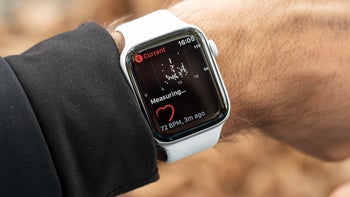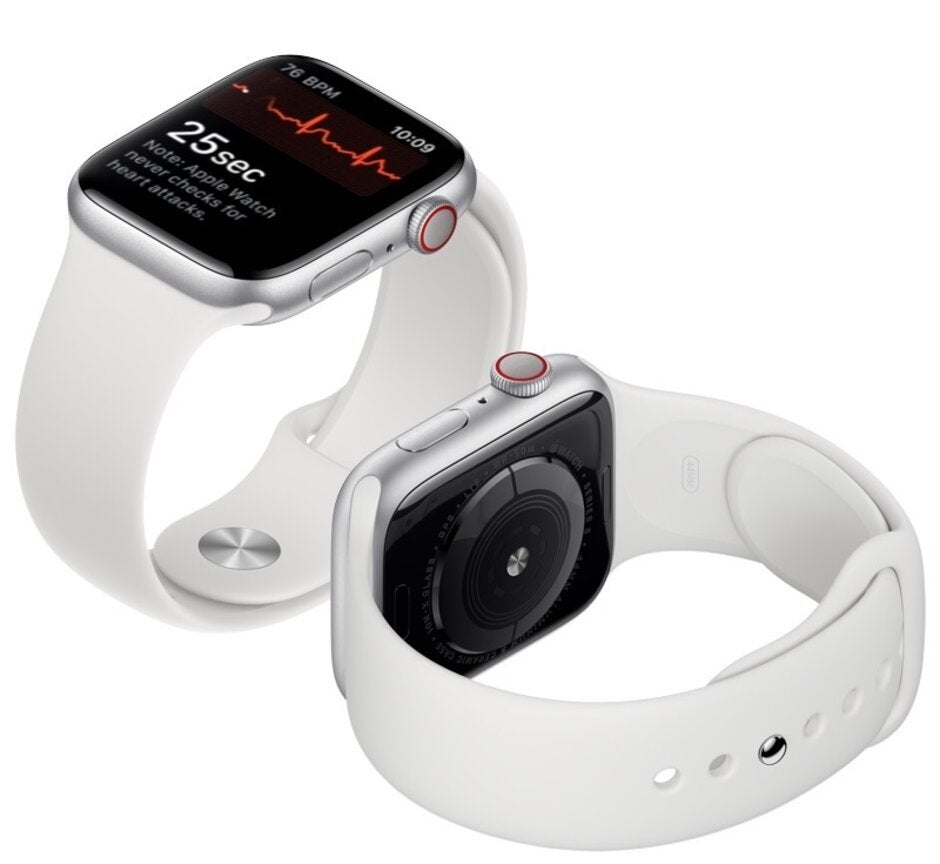Heart doc sues Apple for patent infringement

Ever since the Apple Watch came on the scene in April 2015, the timepiece has been a literal lifesaver for several users. Months after the device was released, we passed along the word that the watch's heart rate monitor had saved the life of a 17-year old high school football player. And throughout the subsequent years, such stories would appear from time-to-time. Apple, of course, was also keeping tabs on these stories and last year it created a video that chronicled some of these incidents.
Apple added another lifesaving feature to the Apple Watch Series 4, an electrocardiogram (ECG) monitor. This feature looks for abnormal heart rhythms that could be from atrial fibrillation; this is the infamous Afib you hear about on television commercials for certain pharmaceuticals. It can lead to strokes, blood clots, heart failure and other heart-related issues. And once again, stories were passed along about how the ECG monitor saved the lives of a few Apple Watch owners. But it might turn out that the actual technology used to create the ECG feature was illegally used by Apple without a license.
Cardiologist claims in patent infringement suit that Apple refused to negotiate in good faith
According to Bloomberg, a lawsuit was filed on Friday in the U.S. District Court for the Eastern District of New York (Brooklyn). The plaintiff, Dr. Joseph Wiesel, teaches at the NYU School of Medicine, and he claims that Apple is infringing on a patent he received for a method he devised to detect abnormal heartbeats. According to the information laid out in court filings, Dr. Wiesel says that he invented a method that monitors "irregular pulse rhythms from a succession of time intervals." The Doctor said that he first spoke with Apple about his patent in September 2017. Despite giving the tech giant details about the patent, the Doctor alleges that the company "refused to negotiate in good faith to avoid this lawsuit." He is asking the court to order Apple to pay him royalties or issue a restraining order that prevents the tech giant from using his patented technology without permission.

The Series 4 and 5 Apple Watch monitor your heart rate and heart rhythms
While there is no doubt that the electrocardiogram feature on the Apple Watch has saved some lives, a recent story published last month by The New England Journal of Medicine (via The New York Times) questions the accuracy of the feature. A study was conducted of 420,000 Apple Watch wearers and over a four-month period, 2,161 were alerted of an irregular heart rhythm (about .5% of those in the study). Those who received the warning on their Apple Watch were offered telemedicine visits (think Doctor on Demand or something similar) and were given electrocardiogram patches to wear to confirm a diagnosis of atrial fibrillation. The patches were returned by mail and if they indicated an emergency, those study members were told to rush to a hospital for emergency care. Others who had Afib but were not considered to have an emergency received a second telemedicine visit and told to visit their regular doctor.
Only 20% or 450 of those who received a warning from the Apple Watch sent back their ECG patch. A confirmed Afib diagnosis was made with only 34% or 153 of these participants. The Times noted that the study couldn't be considered a failure for Apple because it probably led some of the study's participants to get medical treatment that they otherwise would not have received. But as the newspaper states with its headline, "The Watch Is Smart, but It Can’t Replace Your Doctor." In other words, the Apple Watch is not going to replace your physician.
The Apple Watch is not only the top-selling smartwatch in the world, as of 2017 it became the top-selling timepiece globally, including traditional watches. Together with the Apple AirPods, the Apple Watch is part of the company's flourishing and rapidly growing wearables unit. During the fiscal fourth quarter (which ran from July through September), the Wearables, Home and Accessories segment brought in $6.52 billion over the three month period resulting in strong year-over-year growth of 54%.










Things that are NOT allowed: